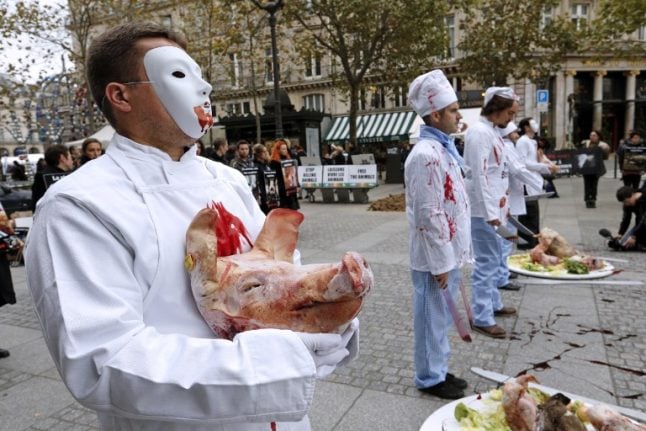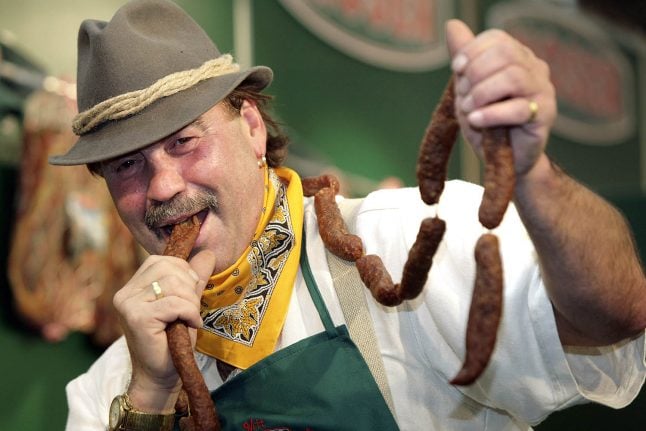 Photo: AFP
Photo: AFP
VEGAN
French butchers ask for police protection from violent vegan activists
Butchers in France have written to the interior minister to ask for protection against violence and intimidation from vegan campaigners who "want to impose their lifestyle on the immense majority of people".
Published: 27 June 2018 15:02 CEST

Photo: AFP
The letter from the head of the CFBCT butchers' confederation, which represents 18,000 businesses across the country, was sent to Interior Minister Gerard Collomb last week and seen by AFP on Monday.
“We count on your services and on the support of the entire government so that the physical, verbal and moral violence stops as soon as possible,” CFBCT head Jean-François Guihard wrote in the letter.
Several butcher shops were vandalised and sprayed with fake blood in the Hauts-de-France region of northern France in April, while the CFBCT said there were also precedents in the southern Occitanie region.
As in other Western countries, eating habits are changing rapidly in traditionally carnivorous France where non-meat food options were once difficult to find on restaurant menus.
READ ALSO:
Vegetarianism and veganism have gained in popularity, leading to falling meat sales, while the animal rights movement is an increasingly visible presence in the media, led by campaigning actress Brigitte Bardot.
The butchers' group accused vegans of “wanting to impose on the immense majority of people their lifestyle, or even their ideology.”
In March this year, a vegan cheesemaker was prosecuted over a Facebook message about a supermarket butcher who was killed in a terror attack.
“You are shocked that a murderer is killed by a terrorist,” wrote the animal rights activist, named as Myriam by media. “Not me. I've got zero compassion for him, there's justice in it.”
Faced with declining meat sales, farmers' groups have effectively lobbied the centrist government of President Emmanuel Macron in recent weeks to prevent measures seen as anti-meat.
A proposal to require schools to introduce a vegetarian meal at least once a week was dropped in parliament, while food producers have also battled to ban the use of “steak”, “fillet”, “bacon” or “sausage” for non-meat products.
A proposal was tabled in the form of an amendment to an agriculture bill in parliament in April, which would hit vegetarian or vegan products marketed as meat alternatives.
Url copied to clipboard!





 Please whitelist us to continue reading.
Please whitelist us to continue reading.
Member comments